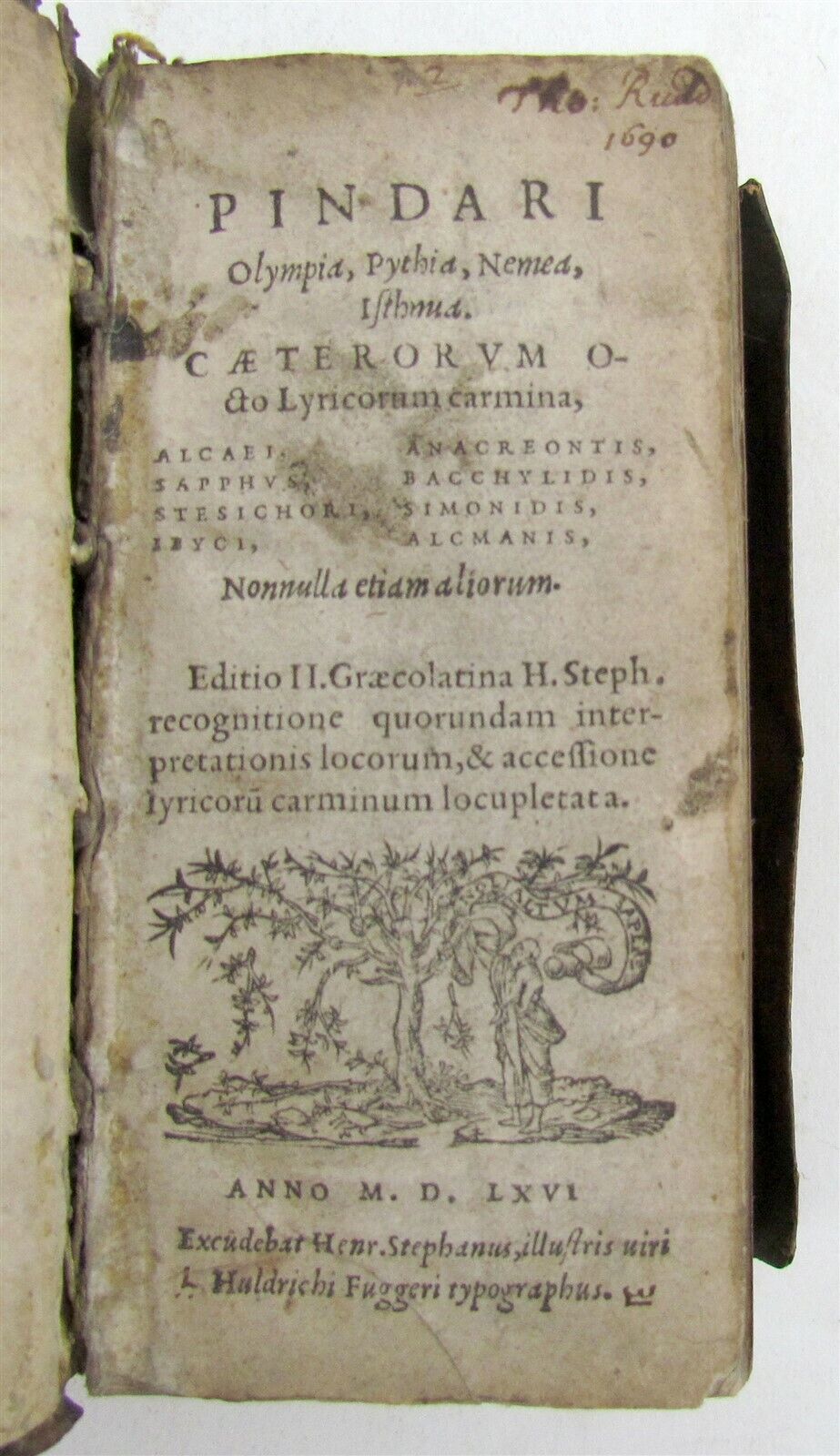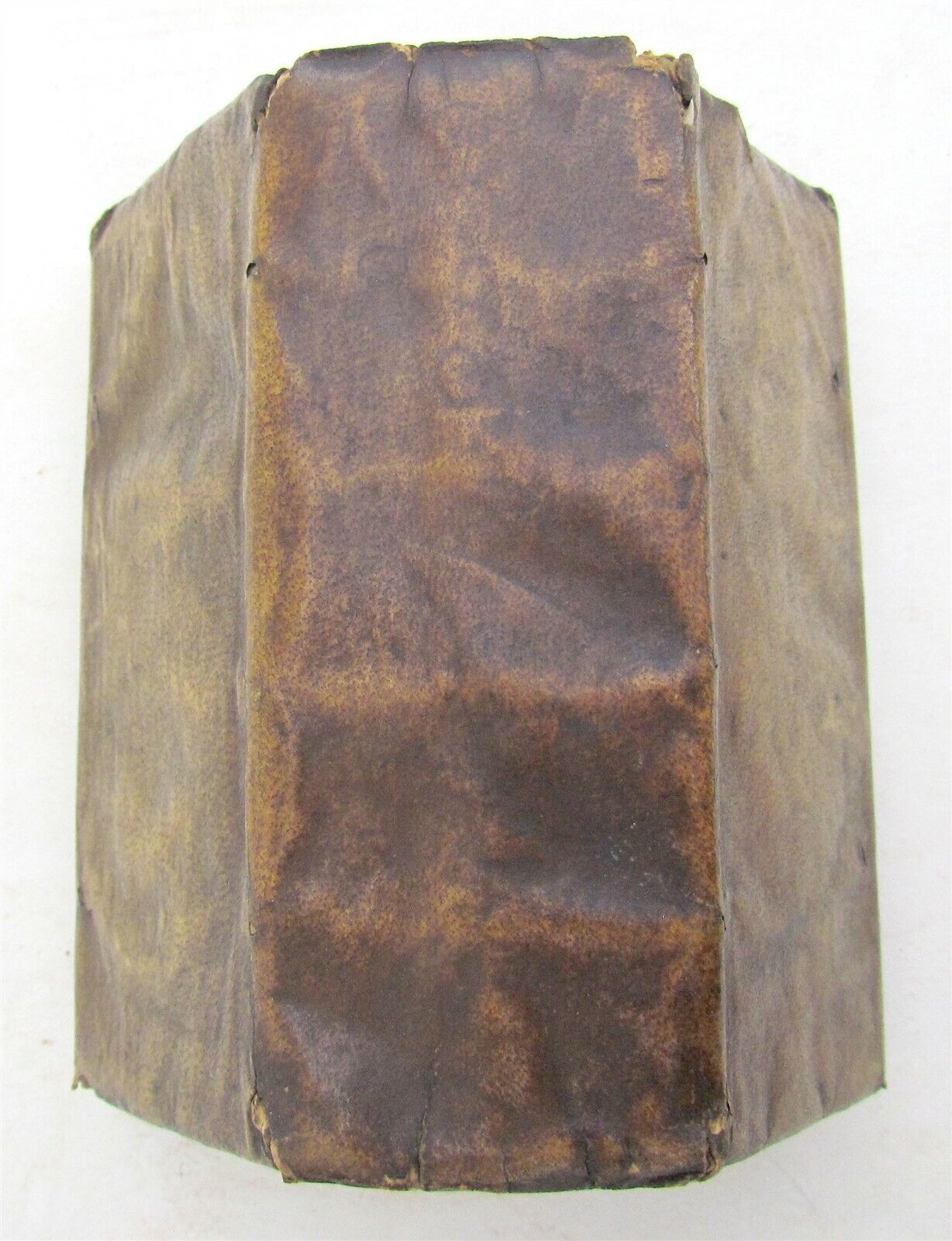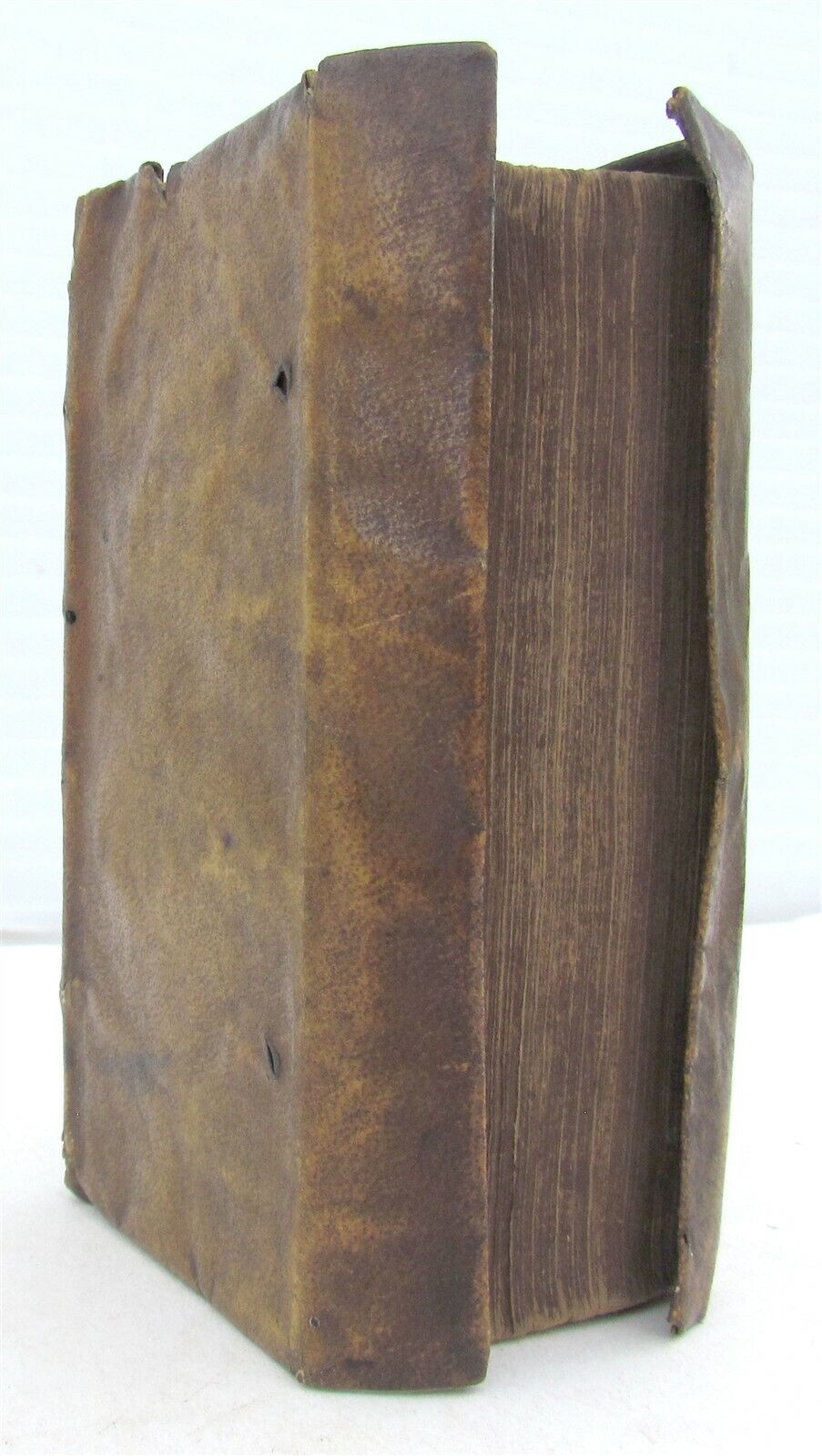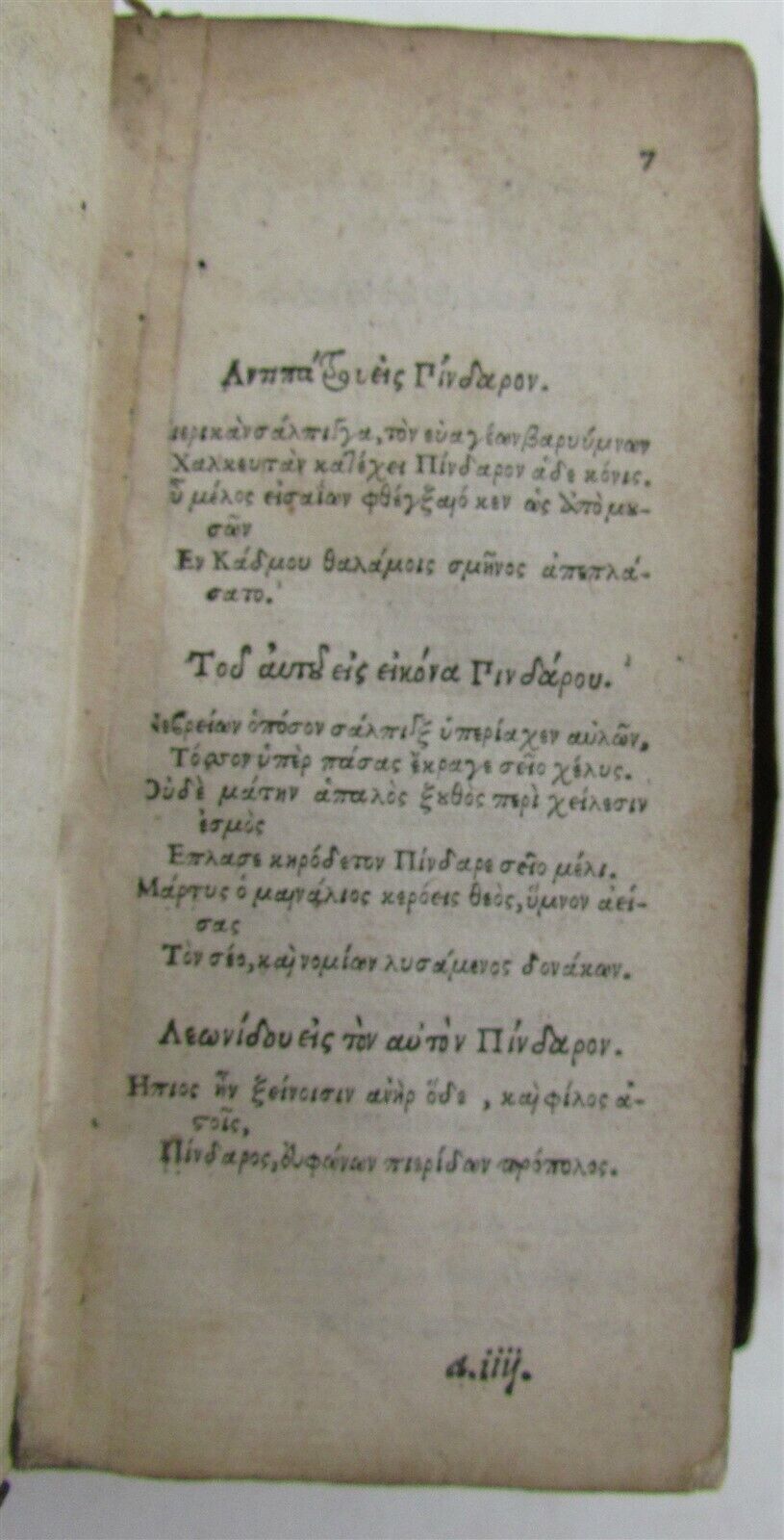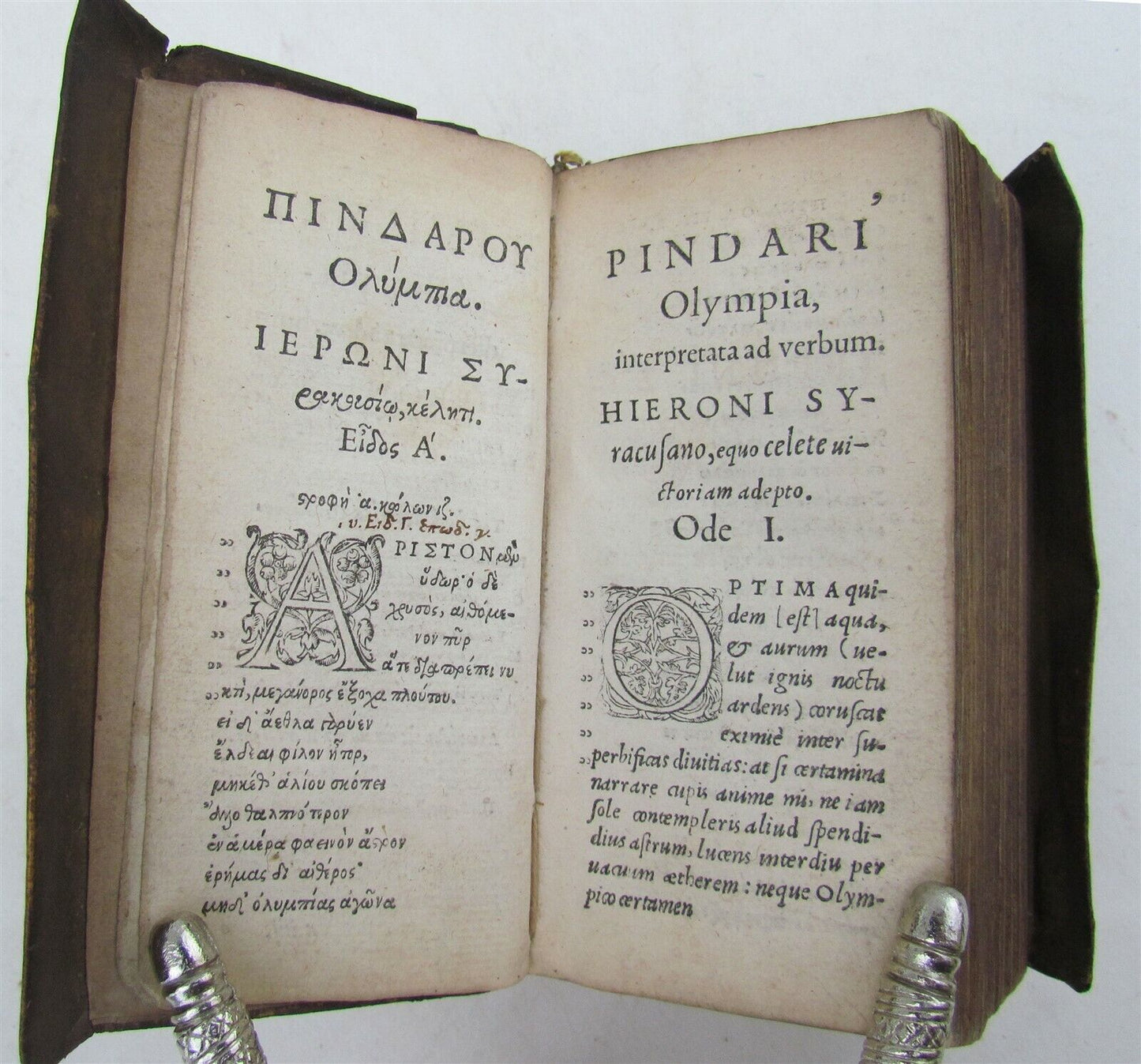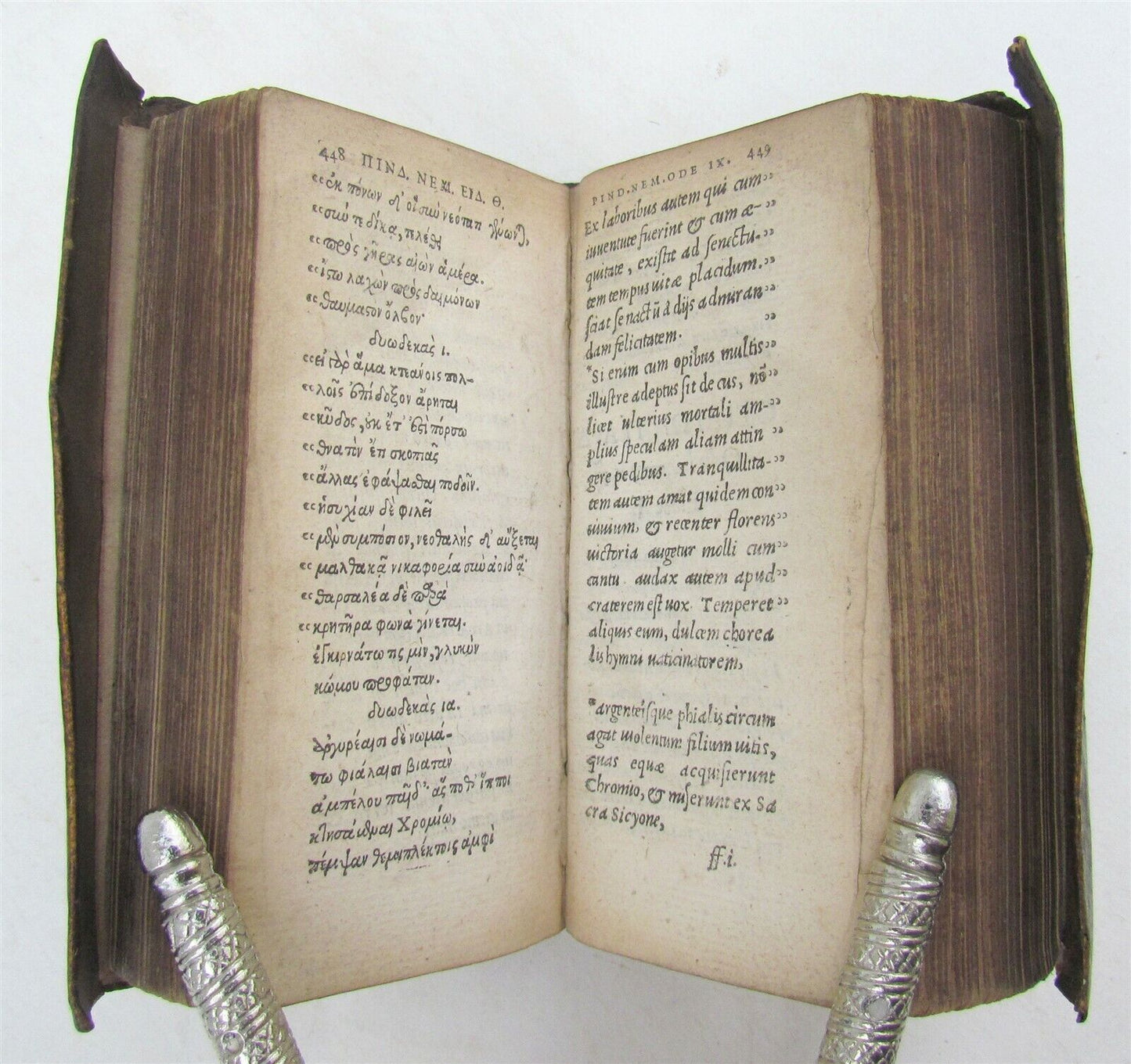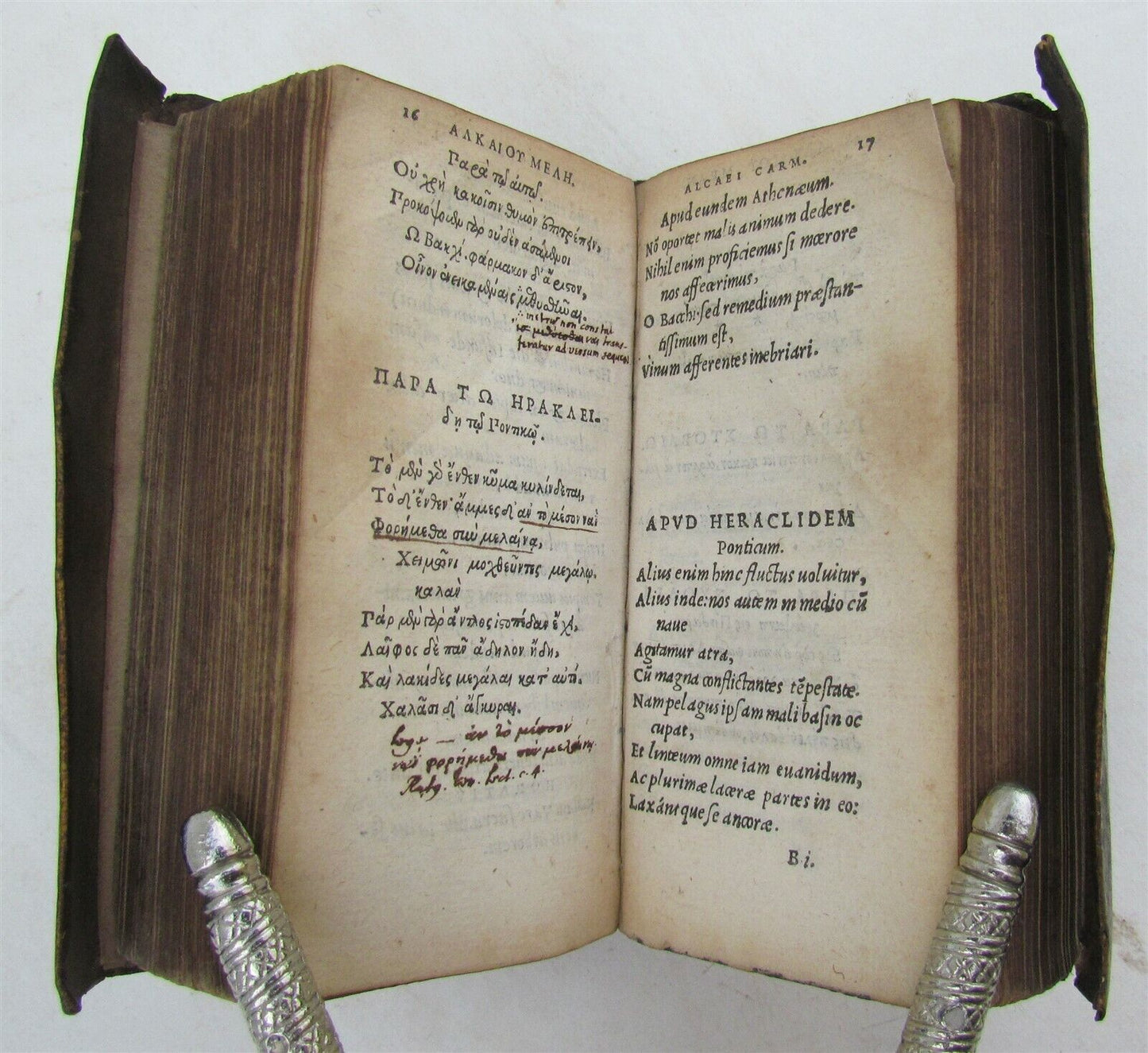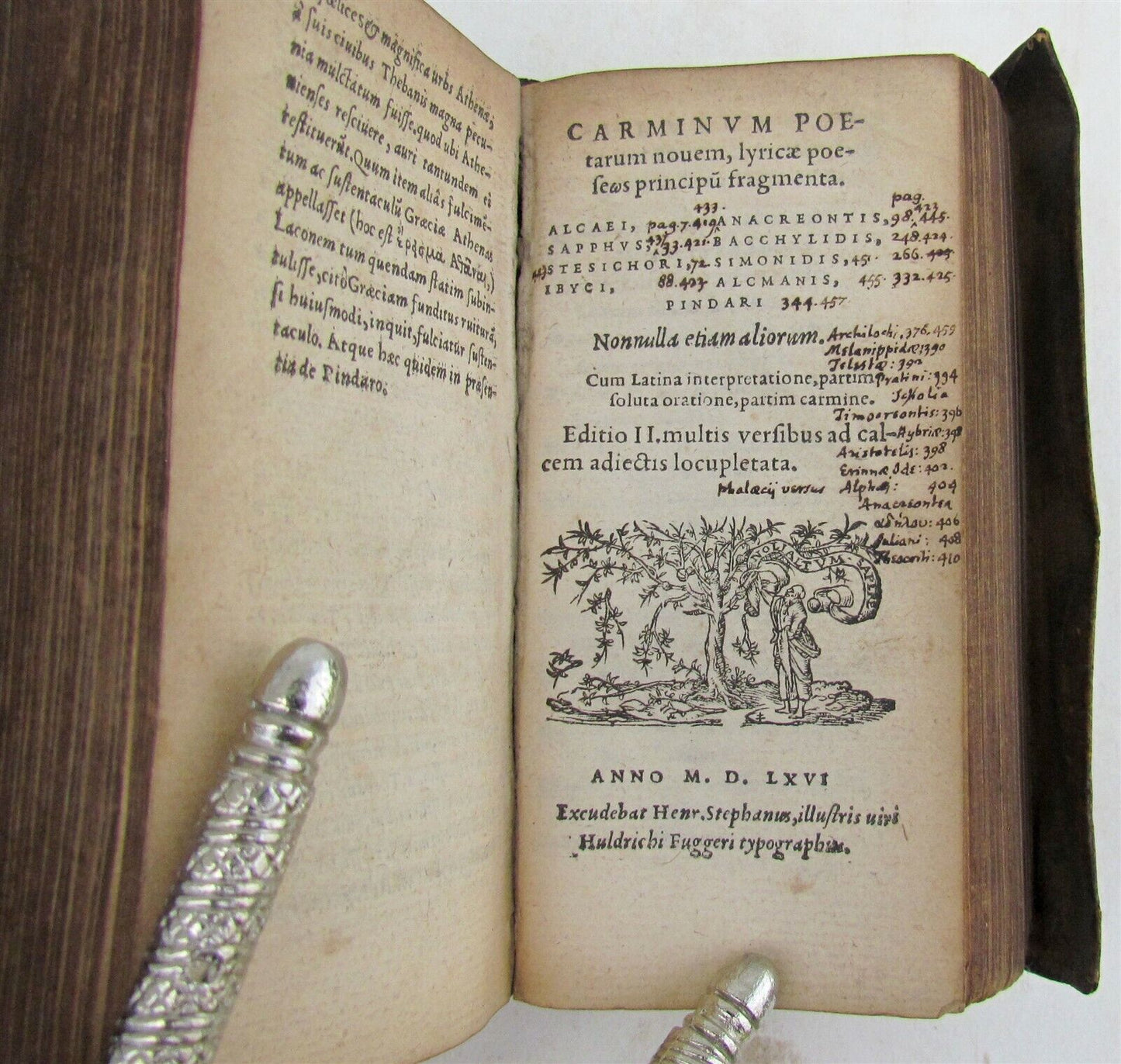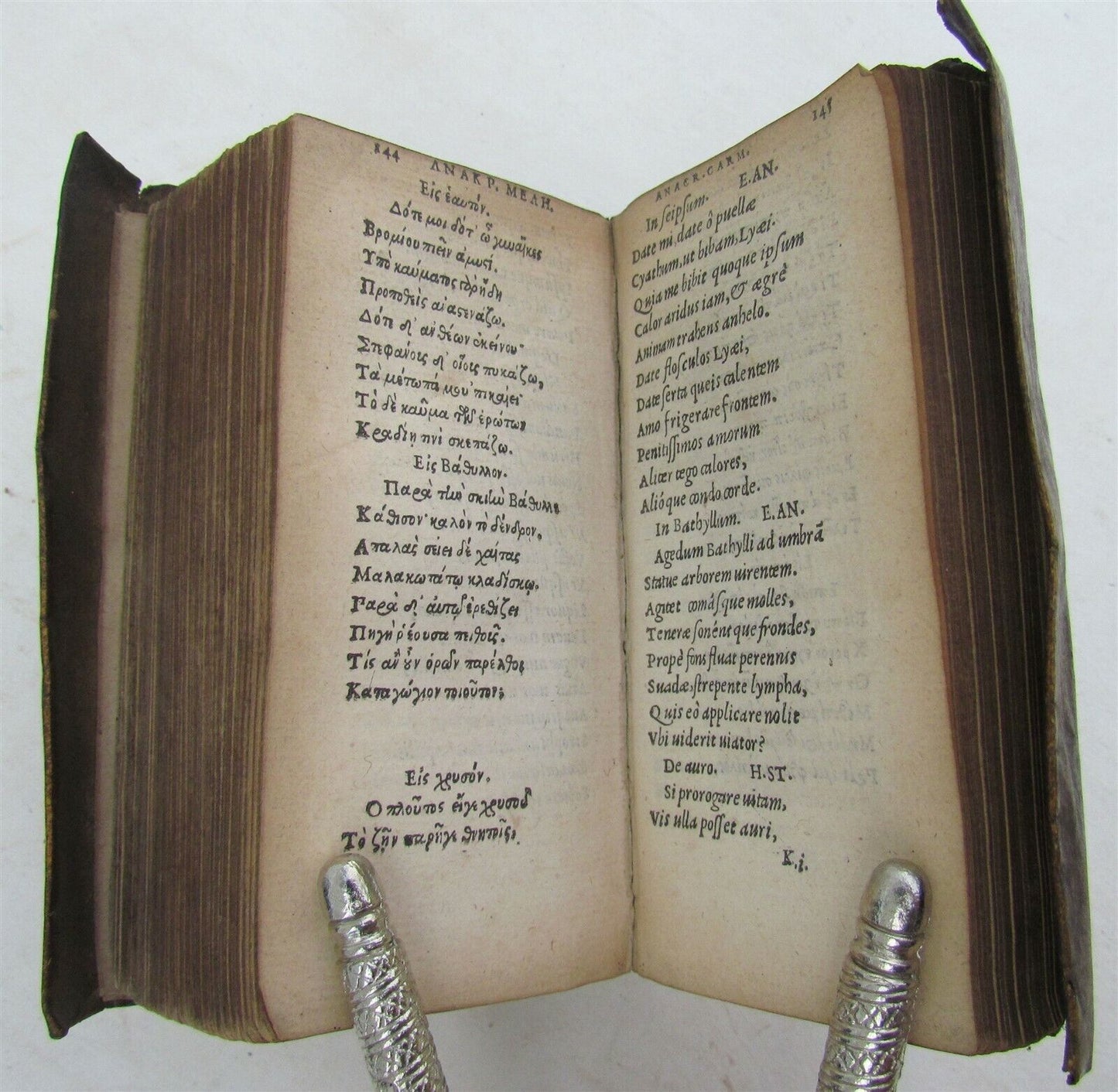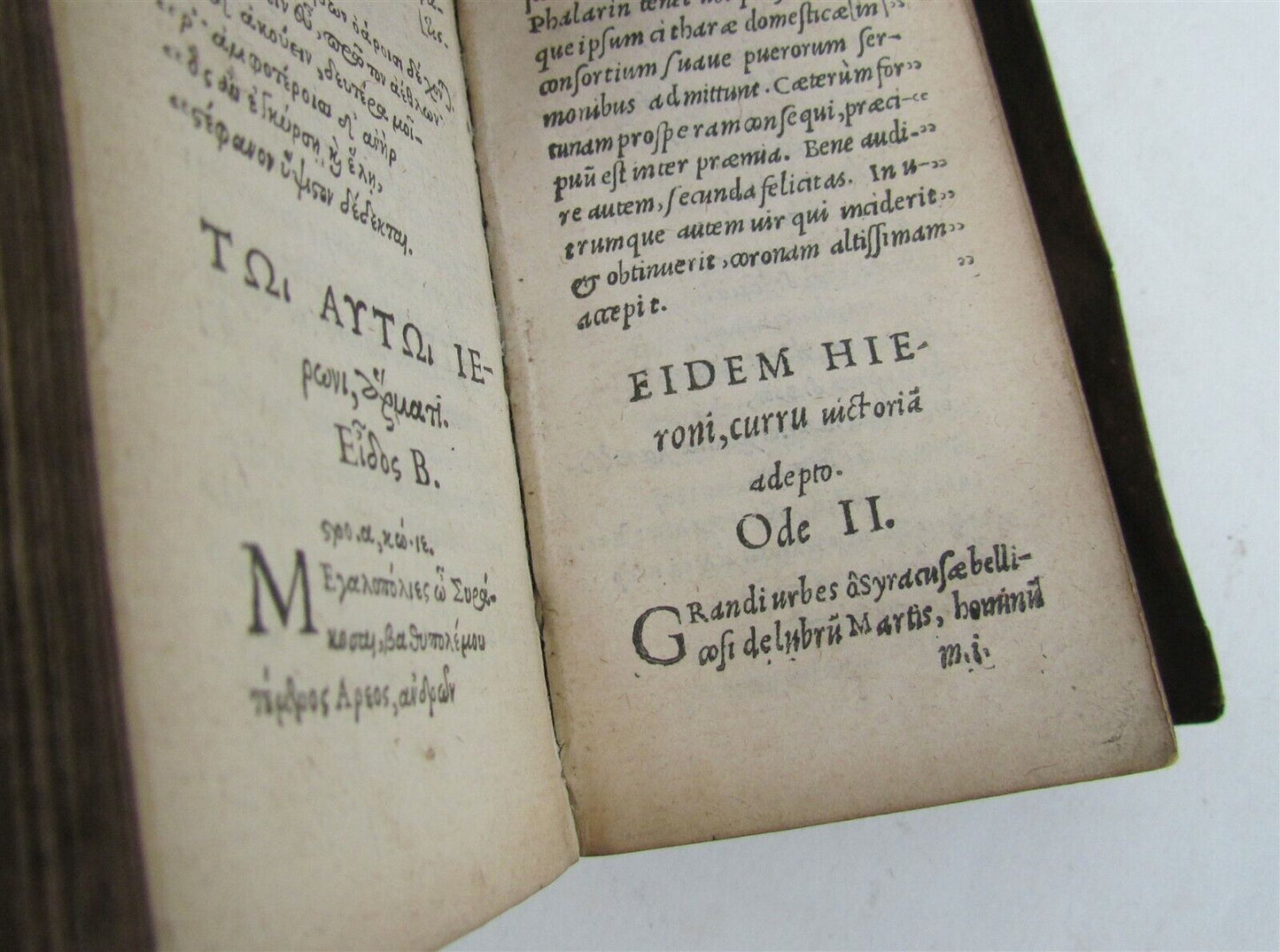Motka
1566 PINDARI OLYMPIA vellum bound ANTIQUE Pindarus GREEK & LATIN Poetry
1566 PINDARI OLYMPIA vellum bound ANTIQUE Pindarus GREEK & LATIN Poetry
Couldn't load pickup availability
PINDARI
OLYMPIA , PYTHIANEMEA, ISTHMIA
Caeterorum octo lyricorum carmina, Alcaei, Sapphus, Stesichori, Ibyci, Anacreontis, Bacchylidis, Simonidis, Alcmanis
nonnulla etiam aliorum.
Editio II.
Graecolatina H. Stefh. recognitione quorundam interpretationis...
Exudebar Henr. Stephanus; 1566
Original vellum binding .
Size 2 1/2 by 5 "
614 pages.
Text in Greek and Latin.
Some soiling of binding
----------------------------------------
Pindar (Pindarus; c. 518 – 438 BC) was an Ancient Greek lyric poet from Thebes.
Of the canonical nine lyric poets of ancient Greece, his work is the best preserved.
Quintilian wrote, "Of the nine lyric poets, Pindar is by far the greatest, in virtue of his inspired magnificence, the beauty of his thoughts and figures, the rich exuberance of his language and matter, and his rolling flood of eloquence, characteristics which, as Horace rightly held, make him inimitable." His poems can also, however, seem difficult and even peculiar. The Athenian comic playwright Eupolis once remarked that they "are already reduced to silence by the disinclination of the multitude for elegant learning". Some scholars in the modern age also found his poetry perplexing, at least until the 1896 discovery of some poems by his rival Bacchylides; comparisons of their work showed that many of Pindar's idiosyncrasies are typical of archaic genres rather than of only the poet himself. His poetry, while admired by critics, still challenges the casual reader and his work is largely unread among the general public.
Pindar was the first Greek poet to reflect on the nature of poetry and on the poet's role.
His poetry illustrates the beliefs and values of Archaic Greece at the dawn of the classical period.
-------------------------------
Please see my other auctions
Thank You
OLYMPIA , PYTHIANEMEA, ISTHMIA
Caeterorum octo lyricorum carmina, Alcaei, Sapphus, Stesichori, Ibyci, Anacreontis, Bacchylidis, Simonidis, Alcmanis
nonnulla etiam aliorum.
Editio II.
Graecolatina H. Stefh. recognitione quorundam interpretationis...
Exudebar Henr. Stephanus; 1566
Original vellum binding .
Size 2 1/2 by 5 "
614 pages.
Text in Greek and Latin.
Some soiling of binding
----------------------------------------
Pindar (Pindarus; c. 518 – 438 BC) was an Ancient Greek lyric poet from Thebes.
Of the canonical nine lyric poets of ancient Greece, his work is the best preserved.
Quintilian wrote, "Of the nine lyric poets, Pindar is by far the greatest, in virtue of his inspired magnificence, the beauty of his thoughts and figures, the rich exuberance of his language and matter, and his rolling flood of eloquence, characteristics which, as Horace rightly held, make him inimitable." His poems can also, however, seem difficult and even peculiar. The Athenian comic playwright Eupolis once remarked that they "are already reduced to silence by the disinclination of the multitude for elegant learning". Some scholars in the modern age also found his poetry perplexing, at least until the 1896 discovery of some poems by his rival Bacchylides; comparisons of their work showed that many of Pindar's idiosyncrasies are typical of archaic genres rather than of only the poet himself. His poetry, while admired by critics, still challenges the casual reader and his work is largely unread among the general public.
Pindar was the first Greek poet to reflect on the nature of poetry and on the poet's role.
His poetry illustrates the beliefs and values of Archaic Greece at the dawn of the classical period.
-------------------------------
Refund Policy: We will issue a FULL REFUND, 100% money back if you are not satisfied with your purchase. Items must be returned to us within 20 days in order to receive a refund or replacement. Buyer is responsible for shipping costs.

Powered by 's eCommerce Solution
Listed with ExportYourStore.com
